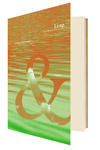Most poets try to seem either winsome or daring, charming or grand; Claire Bateman wants to be both. Her fifth (and best) collection excels by treating big things as little, little as big: “For decades I neglected to pet & comb you,” she tells… the Atlantic Ocean. Another poem defines the sea as “that particular kind of rest / one must fight to enter / & flail against to leave,” comparing it to a child’s nap.
The typical Bateman poem takes a domestic or conventionally feminine topic—mothers, fabric, family reunions, furniture—and either retells a fairy tale around it, or conveys mock-scientific research about it, complete with technical terms and definitions. She defines “Babyhood” as “That state of simultaneous humiliation & decadence from which full recovery is not possible”; the titular sofa in “Dumpster Couch” has been watching “the Failed Weather Channel,” “portraying weather patterns that did not develop.” The Baby Bear in Bateman’s retelling of the Goldilocks story “murmurs a slight song: We are harmless, harmless./ Is this what bears do?” the bears “wonder, / not actually knowing / any other bears.”
Bateman likes to continue, to say more, at a point when another poet would stop short; often she does so by making surprisingly long lists. “The Top 21 Holiday, Party, & Everyday Stains, & How to Remove Them” asks after “spinach & turnip blood— / why are they not included?” “What about pitch, what about tar, what about high voltage scorchings & singeings?”
Anything hopeful, in Bateman, might reveal itself as staged, artificial, fragile. “Reunion” describes the secret (and, we learn, globe-spanning) “group that stages ‘chance’ reunions in public places for the sole purpose of engendering & inspiring hope in all who behold them.” This group, which set out to delight us, ends up as a suspicious, saddening conspiracy. However, anything sad in these poems might also open unexpectedly to reveal humor, or human resilience, at its core.
Most of the pieces in the collection are prose poems. They vary in mode—essays, anecdotes, list-based fantasias. The prose-poem form not only forgives Bateman’s chief fault—a tendency to explain herself unnecessarily—but provides ample space for her greatest virtue, the deceptively amicable, conversational explication of very odd ideas: an infinitely extended telephone apology; a diamond ring’s progress through a sewer system; or a girl who can shrink down to hide in a cake, “a sucronaut” in a “sugar constellation.” If Bateman’s most narrative poems take their models from fairy tales, her most essayistic suggest Francis Ponge’s celebrated French prose poems about the meanings of everyday objects. “I’m the one whom objects seek out,” begins one paragraph.
The best-known American prose poets (Russell Edson, this means you) can seem formulaic when read in large doses; Bateman cares about enough of the world, and adopts enough templates—from journalism, from folklore, from Romantic lyric—to avoid sounding stale. At home in the poetry section of your local bookstore (if that bookstore is as it should be), Bateman’s verse and prose would also fit under “fables,” “essays,” even “flash fiction.” Is she a large-scale inventor, the maker of an entirely new kind of poem? No. Is she a writer whose wit, observation, fluid intelligence, and method of flirting with story, essay, and information make her new poems enjoyable, quotable, even wise? She is.





